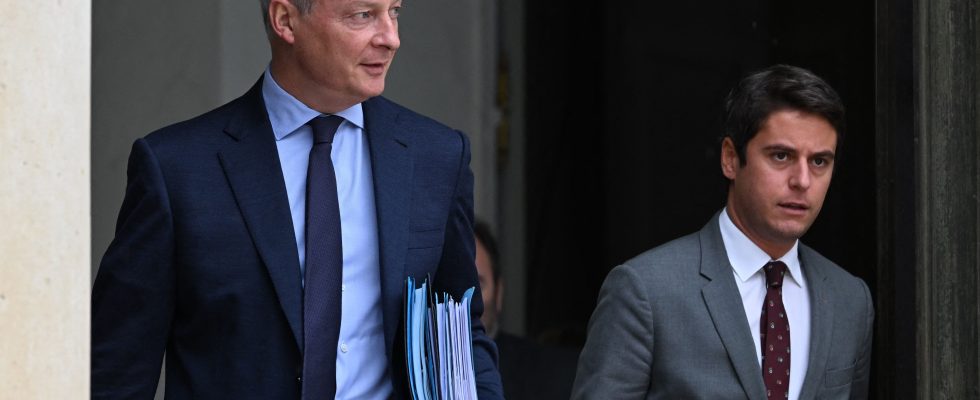The “whatever it takes” is over. This is the message hammered home for months by the executive. The government intends to reaffirm its budgetary seriousness and turn the page on these expensive support measures.
It is in this context that he is organizing this Monday, June 19, a public finance meeting. Organized in Bercy on the initiative of the Minister of Economy and Finance Bruno Le Maire and his colleague in charge of Public Accounts Gabriel Attal, in the presence of Prime Minister Elisabeth Borne, these meetings follow the annual reviews of the expenditure of the State, communities and social administrations, launched in early 2023.
In addition to ministerial speeches, round tables are on the program this Monday with an intervention by Pierre Moscovici, first president of the Court of Auditors who regularly calls the executive to order in terms of public finances.
This will be “the opportunity to present the results of this work […]the orientations and the tracks which are retained by the government to come to irrigate the next financial texts “, including the draft budget of 2024 presented in September 2023, indicated the cabinet of Bruno Le Maire to AFP. The challenge: find billions in savings that will help accelerate France’s financial recovery, according to a trajectory presented in April by the government.
An objective of reducing public expenditure
The aim is to reduce the country’s heavy debt to 108.3% of GDP in 2027 (compared to 111.6% at the end of 2022), which places it on the side of the poor European students, and to bring it below the European objective of 3 % the public deficit (4.7% at the end of 2022).
To get back on track, the government intends to reduce public spending to 53.5% of GDP in 2027, against 57.5% in 2022. It is counting on the end of the energy shield, the gains from reforms such as pensions or unemployment insurance, full employment or even economic growth that he anticipates to be more dynamic, after a slowdown in 2023.
These measures are deemed all the more necessary as the economic environment is getting tougher. Suspended during Covid-19, the European budgetary rules will apply again in 2024 and the sharp rise in interest rates is significantly increasing the burden of the debt, which could become the main item of State expenditure, in a context of slowing growth.
A return to budget nails in 2027?
“This economic context […] constrains our public finance equation and increases the demand accordingly […] reduction in expenditure”, while preserving the sectors considered to be priorities for the energy transition, health and defence, explains Bruno Le Maire’s cabinet.
Already, the executive occupies the ground on the front of the announcements. Estimated at two billion euros per year, a slash is made to public support for the real estate sector, deemed ineffective and too costly. The executive also froze an additional 1% of appropriations from the 2023 budget and asked the ministries to free up 5% in 2024, in particular to finance the energy transition. He also wants to remove tax benefits on fossil fuels and evokes a reduction in employment aid.
But between refusal to increase taxes and social tension, with purchasing power at the center of concerns in the face of high inflation, the room for maneuver is narrow, say economists.
After 4.7% in 2022, the government expects a public deficit of 4.9% in 2023, before a gradual decline from 2024, and forecasts a return in 2027 below 3%. The S & P agency, which maintained the French “AA” rating on June 3, does not seem to believe it: it does not give forecasts for 2027 but is counting on a deficit of 3.8% in 2026 and forecasts a growth of 1.2% on average between 2023 and 2026, compared to 1.5% on the government side.
